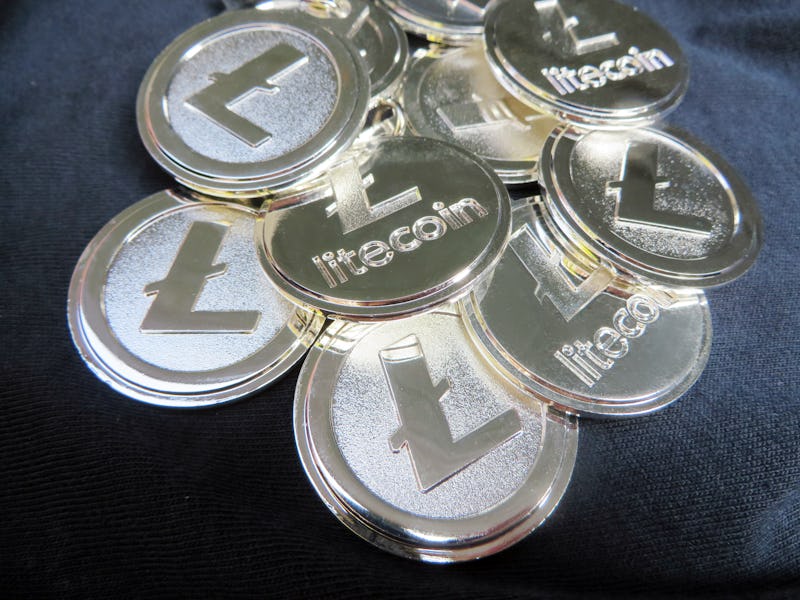Litecoin Cash vs. Bitcoin Cash: What to Know About Cryptocurrency Forks
Litecoin is about to split.

Litecoin is on the verge of a major split. Litecoin Cash, expected to “fork” from the original project on Sunday, has caused a stir in the cryptocurrency community as insiders fear confusion around the new token. In many ways, the split bears similarities to that of the Bitcoin Cash split that occurred in August 2017, but there are some key differences between the two projects’ goals.
Litecoin Cash is a “hard fork,” which means the project is breaking away from the cryptocurrency and making some big changes on the existing code. The split will occur at block 1371111, currently estimated for Sunday evening. When it happens, anyone holding Litecoin will receive 10 Litecoin Cash tokens for every Litecoin token in their wallet.
It’s a process all to familiar to the Bitcoin Cash team, which split away and has now become the world’s fourth-largest cryptocurrency. The token enjoyed an impressive surge in value on Friday, jumping 11.3 percent over the 24-hour period to reach a value of $1,510.22 per token and a market cap of $25.6 billion. This was in part due to news about BitPay adoption and SBI Group mining.
Why Fork?
Cryptocurrencies like bitcoin depend on consensus for change. Miners run software to interact with the token blockchain. If these miners are running differing versions of software, and the changes made in those versions aren’t backward compatible with older versions, it means ending up in a situation where miners are creating blocks for two entirely different chains. Agreement is key, but if a change can’t bring forth an agreement, some members of the community can decide to push ahead with a fork anyway.
The big incentive to avoid a hard fork is that a new cryptocurrency will have a different marketplace valuation, so a fork requires belief in the new system to rally the price of the new tokens and make mining worth the while.
What’s the Difference?
The two tokens have different goals in mind. Bitcoin Cash was about increasing the size of the original bitcoin’s block from one megabyte to eight, which means more data processed at once and a potential increase in transaction speed. Bitcoin receives criticism for only processing around seven transactions per second globally, as opposed to the 50,000 or so with a regular credit card.
Bitcoin vs. Bitcoin Cash
Litecoin Cash is less about transaction speed. The original Litecoin was already meant to be a speed-focused complement to bitcoin, with the block time needed to validate transactions reduced 75 percent to two-and-a-half minutes. It has been described by its creator, Charlie Lee, as “the silver to Bitcoin’s gold.”
Instead, Litecoin Cash’s main goal is to repurpose older mining equipment designed to create cryptocurrency tokens using the SHA-256 algorithm. One of the big changes Litecoin made from bitcoin is switching to another system called Scrypt, making older machines obsolete. The team also claims transactions will be 90 percent cheaper than Litecoin.
Why Are They Both Called “Cash,” Then?
The Litecoin Cash team points the finger at a growing trend in the cryptocurrency community, one sparked by Bitcoin Cash:
We’re using the Litecoin Cash name simply because it has become customary in recent months for a coin which forks a blockchain to prefix its name with the name of the coin being forked. This practice has become a widely understood convention. We’re not associated or affiliated with Charlie Lee or any of the Litecoin team in any way; we are big fans though.
This reasoning has not gone down well in the community, with some fearing that Litecoin Cash might become confused with its original token. This is not unrealistic. Online retailer Overstock mixed up bitcoin and Bitcoin Cash in January, allowing customers to pay with either token at the same numeric token amount. This meant buys paid only around 15 percent of the actual price for products.
“It confuses people into thinking litecoin is splitting,” Charlie Lee, the founder of Litecoin, told CoinDesk on Friday. “The litecoin community has no interest in splitting. It’s just some people trying to make a quick buck. And calling it litecoin gives them some legitimacy.”
If you liked this article, check out this video about Litecoin’s creator, a meme-loving Internet Dad.